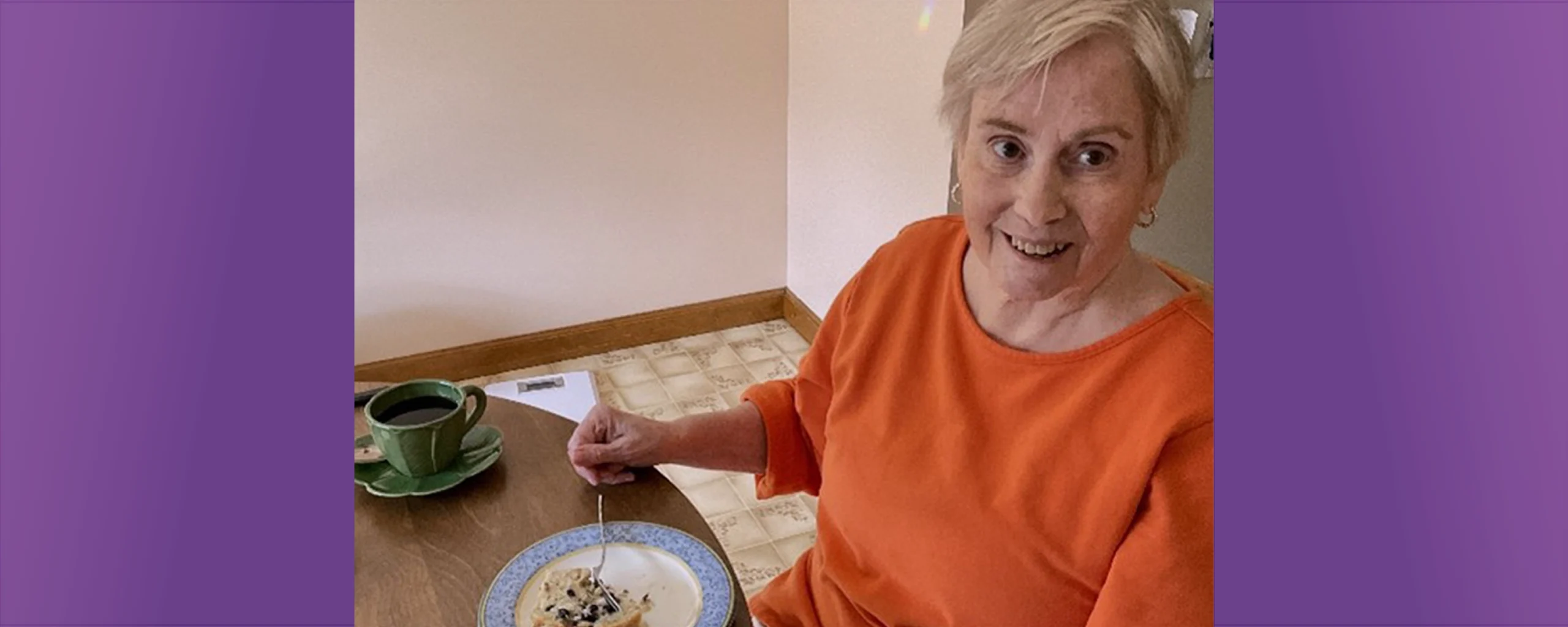
Roberta is emerging from a decade of mental and physical health challenges like a caterpillar morphing back to the beautiful butterfly she has been most of her life. Voted most sociable in high school and receiving national recognition from her office supply job in customer service, Roberta helped people in all of her jobs including being a travel agent and a customer service representative for state child support. Whether it was backpacking with her friends around Europe or studying geography in college, Roberta has always had a vibrancy to explore the world and continues to learn. Good luck seemed to follow her, and she has a knack for finding 4-leaf clovers, which she either presses into a book or shares in a homemade card.
That luck started to shift when a serious depression overcame her, and she was in bed for 9 years! One night she awoke vomiting blood after having the flu which brought her the local hospital. While there, she had her first heart attack. Transferred to a larger city hospital, she received specialized care and then discharged to a rehabilitation facility. However, within a week, chest pains signaled another heart attack and she returned to the hospital and was given last rites. “I really thought I was going.” After additional tests and care, she was stable enough to recover at the nursing home.
Roberta admits it was difficult to be in the nursing home for nine months. However, she tried to be a “patient patient.” Her rehabilitation included good physical therapy and nursing care, which she attributed to helping her start moving around again and get stronger so she could get out of a wheelchair. Roberta was already in the process of applying for Medicaid when she was introduced to Money Follows the Person (MFP) program through the facility social worker. She filled out the application and began working with a specialized care manager and transition coordinator to identify that she would only need homemaking services. Fortunately, she did not need to find new housing. After several attempts to find a homemaker who would help with cleaning and laundry, Roberta’s luck has returned. She met someone whom she gets along well with and coincidentally both share the same wedding date. While it was not easy living away from her husband, he helped in his wife’s recovery by taking her out of the nursing home for lunch as often as possible. Now that they are back living in their condominium, he will drive Roberta due to her glaucoma, continued difficulty walking and dizziness.
New kitchen blinds let in light, prisms spread rainbows across the wall and land on Roberta’s hands. She wants to get things more cheerful again and make the most of everyday. She realizes in hindsight that “she lost nine years of my life” during her depression. “The heart attacks changed me the most, but my number was not up yet.” She also advised, “Don’t wait until you retire to travel. Be positive and keep in touch with friends and family.” The couple is getting ready to live those words by traveling across the country to visit her sister. Her motto:
“Be Peaceful. Be Kind. You’re only on this earth for a short time.”
Read the CT Money Follows the Person Quarterly Report
MFP Demonstration Background
The Money Follows the Person Rebalancing Demonstration, created by Section 6071 of the Deficit Reduction Act of 2005, supports States’ efforts to “rebalance” their long-term support systems, so that individuals can choose where to live and receive services. One of the major objectives of Money Follows the Person (MFP) is “to increase the use of home and community based, rather than institutional, long-term care services.” MFP supports this by offering grantee States an enhanced Federal Medical Assistance Percentage on qualified services. MFP also offers states the flexibility to provide supplemental services, such as assistive technology and enhanced transition services, to assist in successful transitions. States are then expected to reinvest the savings over the cost of institutional services to rebalance their long-term services and supports for older adults and people with disabilities to a community-based orientation.
